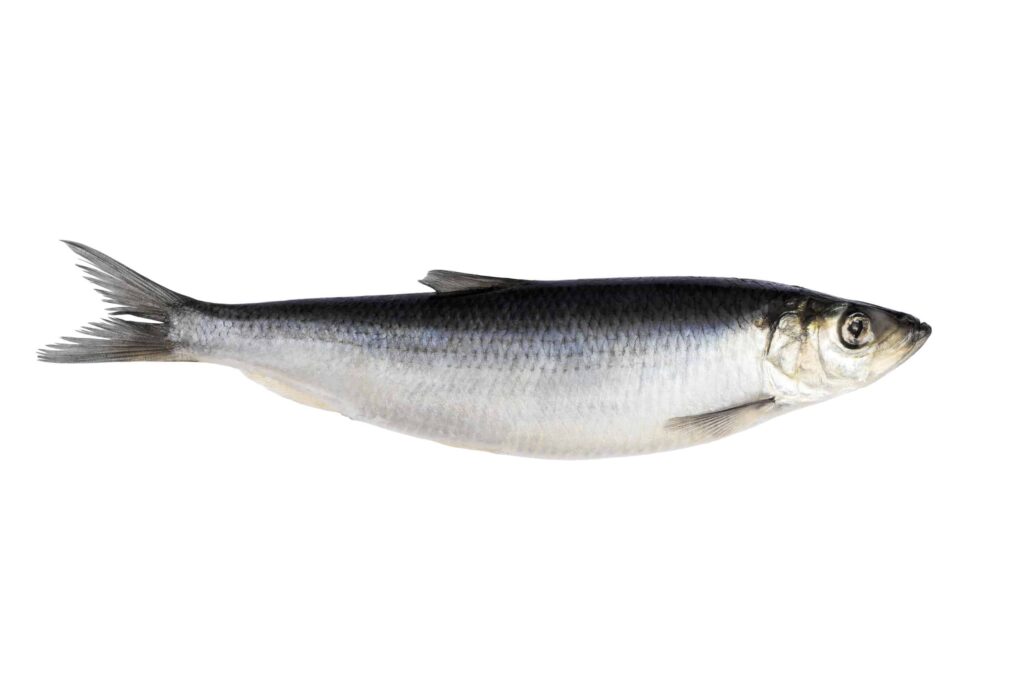A red herring is a logical fallacy where information is presented to distract from the main argument and shift the focus to something tangential or completely unrelated. The information presented in the fallacy may or may not be true, but its veracity isn’t the point. A red herring is an attempt to obfuscate and distract from the original point.
For example:
Wife: “You never load the dishwasher. You always leave a pile of dirty dishes in the sink, instead!”
Husband: “Well, you park your car in the middle of the driveway so there is no room for mine. I always have to park on the street!”
In this scenario, the wife points out that the husband doesn’t load the dishwasher. Rather than address her point, the husband introduces a red herring fallacy. He diverts attention away from the sinkful of dirty dishes and toward his wife’s car. It may very well be true that his wife parks in the middle of the driveway, but that was not the point of the original discussion. The husband uses a diversionary tactic to change the subject, which is known as a red herring.

Marriage tip: don’t try to use a red herring to win an argument!
©iStock.com/JackF
Herring
Before we talk about the idiom itself, we need to know a little bit about the herring. A herring is a small forage fish. Different species of herring are found in both the Atlantic and Pacific oceans. One of the most abundant fish in the world’s oceans, a school of herring can number in the millions, if not billions.
These small fish are important prey for seabirds such as common murres, Atlantic puffins, razorbills, common terns, and Arctic terns. Herrings are also a favorite food for dolphins, porpoises, whales, seals, and sea lions. Predatory fish also target herring, including sharks, swordfish, sailfish, tuna, salmon, striped bass, cod, and halibut.

Herrings are small fish that are an important food source for all kinds of ocean animals, as well as humans.
©SNeG17/Shutterstock.com
Many humans also have a taste for herring. For example, the Atlantic herring fishery in the Northeast United States is worth $6.6 billion annually. Herring can be frozen, canned, fermented, dried, pickled, or kippered.
Red herring is not a species name. Instead, the fish’s flesh can turn red when herrings are kippered (cold-smoked over smoldering wood chips). The resulting “kippers” are sometimes called red herrings. Because herring are often heavily brined before they are smoked, they can have a strong, pungent smell.

Kippers are smoked herring. The brined fish becomes “red herring” during the smoking process.
©iStock.com/Fudio
Origin of the Idiom
The red herring idiom’s origin is not known with certainty. Here are a few theories that have been popularized.
Escaped Convicts
One story suggests that after a jailbreak, escaped convicts in the seventeenth century would use pungent red herrings to cover their scent and confuse the bloodhounds that were pursuing them. This is most likely apocryphal.
A Test for Scent Hounds
Another well-known origin story for the modern idiom suggests it came from a training technique for hunting and tracking dogs.
As the story goes, a red herring would be dragged along a trail to train young dogs to track a scent. Then, in later training sessions, these brined fish would be used as a test. The hound was released to track the faint scent of a fox or badger. Meanwhile, further up the trail, a red herring was dragged perpendicularly across the animal’s track. This would help the trainers assess whether the dog would stay on the scent of the animal it was originally tracking or if the dog would become confused and begin trailing the stronger scent of the red herring.
This was supposedly the idiom’s origin since it is a logical fallacy designed to throw an opponent “off the trail” through confusion and redirection. The theory has little actual evidence in its support, though.

Legend states that red herrings were used to test bloodhounds while they were in training.
©NSC Photography/Shutterstock.com
Actual Uses of Red Herrings in Animal Training
English writer Thomas Nashe wrote about how a red herring was used to train hounds to follow a scent in 1599. Nearly 100 years later, Gerland Langbaine wrote a horse-training tract where he noted how a red herring was useful to train horses to keep following hounds even when a hunting party became chaotic. In both cases, the fish were used to coach the animals, not confuse them.
Birth of the Modern Idiom
The modern use of the idiom came from a piece William Cobbett wrote in his controversial newspaper, Cobbett’s Political Register, on February 14, 1807. In the article, Cobbett criticized the English press for erroneously reporting Napoleon’s defeat. He recounted a story from his childhood (which was almost certainly fabricated), recalling how he once used a red herring to deflect hounds in pursuit of a hare. He drew a parallel to the English press, saying newspapers were spreading false news of Napoleon’s defeat as “a political red herring” designed to distract people from more important domestic issues.
Michael Quinion, a British etymologist and writer, noted that Cobbett’s fabricated story “was enough to get the figurative sense of red herring into the minds of his readers, unfortunately also with the false idea that it came from some actual practice of huntsmen. “

William Cobbett created the red herring idiom as we know it today.
©(National Portrait Gallery UK) Painted circa 1831 By artist George Cooke (1781-1834), Public domain, via Wikimedia Commons – License
Mythbusters
In 2010, the crew from Mythbusters took on the story of escaped convicts using red herrings to cover their tracks and throw search dogs off the trail.
Jamie Hyneman acted as the escapee. He was given a five-minute headstart. He dropped several cans of red herring along the trail hoping to confuse the bloodhound that would track him.
After the dog was put on the trail, it did stop momentarily to eat some of the herring. However, the trainer could direct the dog’s attention back to the task at hand. The bloodhound found Jamie’s scent again, ignoring the remaining fishy odor. The bloodhound soon located Jamie.
Myth: Busted!
Examples of Red Herring Fallacies
Even though the origin stories of red herrings used to confuse hounds are not rooted in history, the idiom’s meaning took hold. Today, a red herring is understood as a diversionary, obfuscatory tactic.
Literature and Film
It is a popular device in literature and film because it adds a plot twist that keeps readers or viewers guessing.
Alfred Hitchcock, for example, used red herrings masterfully. In Psycho, the classic 1960 horror movie based on a novel by Robert Bloch, Hitchcock uses a red herring to bait viewers into believing that Norma Bates is the psychotic killer who ran the Bates Motel. She was always sitting by the window and was constantly uncooperative. She also had an established psychotic motive to carry out the murders. Viewers fully expected her to be the serial murderer in the movie.
In the end, though, the killer was revealed to be her son, Norman. He had murdered his abusive and psychologically-controlling mother, but he kept her body in the fruit cellar. Norman would speak to his mother’s corpse as if she was still alive. He even dressed as “Mother” when carrying out his heinous acts. It was a brilliant red herring that threw audiences off track until the very end, when the killer’s identity was revealed.

Politics
Red herrings are provocative and compelling in film and literature but can be more sinister and harmful in real life. For example, red herrings are often used in political discourse. Politicians are famous for using these fallacies to divert the attention of their constituents away from the matter at hand.
How often have you watched a political debate where a candidate responded to a difficult question by changing the subject and prattling on about something that was only tangentially related, or possibly completely unrelated, to the original question?
Moderator: “What will you do to curb greenhouse gas emissions?”
Candidate: “We all care about the environment, but I will be working hard for my constituents to lower taxes and create more jobs.”
This is a red herring fallacy. It doesn’t mean that lower taxes and job creation don’t matter. Of course, they do. But the question was about greenhouse gas emissions, not about taxes or job creation. The candidate avoided answering the question by redirecting listeners’ attention to a different issue.

Keep your ears open for red herring fallacies when watching political debates!
©Gage Skidmore, CC BY-SA 3.0, via Wikimedia Commons – License
Moderator: “How do you respond to the accusations of corruption in your party?”
Candidate: “I have a plan to combat corruption, and I also have a multi-faceted plan to reduce carbon emissions. The first step in that ten-point environmental plan is…”
Is it important to reduce harmful emissions? Without a doubt. But the question was about political corruption, not about carbon emissions. Since the candidate didn’t want to address that issue, they used a red herring fallacy to redirect attention to a completely separate issue.
The use of this political tactic was even portrayed by Mayor Quimby in an episode of The Simpsons.
Red herring fallacies certainly aren’t limited to political leaders, though. They also appear often in discussions and arguments on social media.
Purveyors of red herrings seem to live by the motto, “If you can’t convince them, confuse them.”
Business
Red herrings are also used in business.
Customer: “I am calling to cancel my credit card due to this company’s multiple security breaches.”
Credit Card Company: “Were you aware that we just introduced a new line of credit cards with reduced fees?”
Security was the issue raised by the customer. The credit card company tried to redirect the customer’s attention to its new line of credit cards with lower fees. That’s a red herring.
Knowing how to spot a red herring is essential for well-informed individuals to avoid being manipulated, duped, or grifted.
Everyday Life
Red herrings show up in everyday life, too. You’ve probably used them yourself, maybe even without fully realizing it. Consider a couple of examples from the Texas State University Department of Philosophy.
Son: “Wow. Dad, it’s really hard to make a living on my salary.”
Father: “Consider yourself lucky, son. Why, when I was your age, I only made $40 a week.”
This is a red herring because the father doesn’t address his son’s predicament but instead changes the focus to an outdated and irrelevant example from his past.
Daughter: “I’m so hurt that Todd broke up with me, Mom.”
Mother: “Just think of all the starving children in Africa, honey. Your problems will seem pretty insignificant then.”
This is another red herring. Instead of addressing her daughter’s heartache, the mother redirects her attention to a completely unrelated problem and minimizes her daughter’s pain in the process.

Red herrings aren’t helpful, dad!
©iStock.com/JackF
Recognize the Red Herrings All Around You!
Sometimes red herrings are unintentional or even well-intentioned. Other times, these logical fallacies are intentionally used to confuse and obfuscate an issue. Now that we know what a red herring is and where the idiom came from, we can all be on the lookout for these fallacies that we encounter daily!
The photo featured at the top of this post is © iStock.com/Lena_Zajchikova
Thank you for reading! Have some feedback for us? Contact the AZ Animals editorial team.






